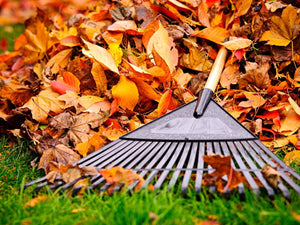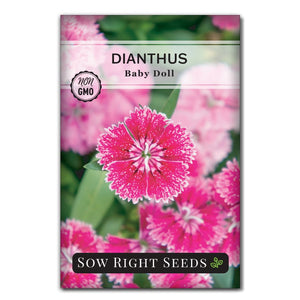10 Special Considerations for Planning the Perfect Container Garden
Container gardeningWant to grow a garden but only have a small space? Container gardening can be the answer! Consider these important factors when planning, and you’ll be on your way to your best garden yet.

Tips for Planning a Container Garden
Container gardening is a flexible way to grow your favorite herbs, flowers, and vegetables. With a little planning, you can create the perfect garden. Whether you're starting with one pot or 20, consider these tips when planning what, where, and how to start your container garden.
Key Considerations for Container Garden Planning
Composition
What plants are you growing, and how will they look together? Are they good companion plants to each other? If you take some time to consider what plants you’re pairing with each other, your space, and the containers you have available, your container garden will look better and be healthier.
Choosing the Right Size Container
This takes a little bit of research on the particular plant. You’ll need to know some things about how much space the full-grown plant will reach and how much root room you’ll need. Some plants do poorly if they are planted in too large of a container and benefit from gradual potting up. Other plants do poorly when their roots are damaged and would be better off in their “forever home” from the start.
Container Friendly Plants
Some plants just do better in containers than others. Herbs are great for container gardens, but that’s not all you can grow! Look for dwarf and bush varieties of vegetables for growing in containers. They are often the perfect fit for a container garden - compact and highly productive.
Potting Up Plants
If you have plants that need potting up, do it promptly. You don’t want your plants to get pot-bound. If you plan and prepare, you’ll be ready with a new container when they’ve outgrown their current home.
Weather Conditions
If your container garden is outside, make sure it’s well-situated to handle any weather conditions that are typical in your area. If you have a lot of wind in your location, make sure your pots are in a stable location and are heavy enough to stay in place. Pay attention to where the water runs off if you’re planting on a deck or balcony or if the area gets extra hot in the summer. These factors can help you decide what to plant and where to place your containers.
Location
What’s the best place for your container garden? Check the seed packets and growing information to see if they need full sun or partial shade. In addition to considerations about light and weather, you’ll also want a place that you can easily get to so that you can take care of it. If you’re growing vegetables or herbs, is your garden close to your kitchen or in an easy spot for harvesting?
Watering
How do you plan to water your container garden? Whether you use a garden hose, a watering can, or an irrigation system, you need to think about this as a part of your planning. Container gardens need to be watered frequently. Make sure that your containers have good drainage so that you don’t waterlog your plants.
Growing Mediums for Container Gardens
Whether you buy a premade mix or create your own, choose a growing medium well-suited to container gardening. Garden soil will quickly become too compact and suffocate your plant’s roots. Some plants have special needs, so make sure your soil mix is appropriate for the types of plants you are growing.
Fertilizer
The soil in a pot or container is prone to becoming depleted faster than garden soil. Don’t forget to add nutrients and organic matter as needed to keep your plants healthy. Choose a fertilizer with the right mix of nutrients for flowers or vegetables.
Support
Will your plants need extra support, like stakes or a trellis? Some plants can look lovely and stay healthy while trailing over the edge of a container, but that’s not always the case. You’ll especially want something to keep your tomatoes and other fruiting vegetables from touching the ground. Plan early so you can install the appropriate trellis before it disrupts the roots.
Good things can come in small packages! Containers allow people to garden who might not otherwise be able to grow due to land constraints or mobility issues. A well-planned container garden can be a lovely oasis with beautiful flowers, fragrant herbs, and delicious vegetables. These considerations are key in planning a container garden.
Written by Teresa Chandler







Leave a comment